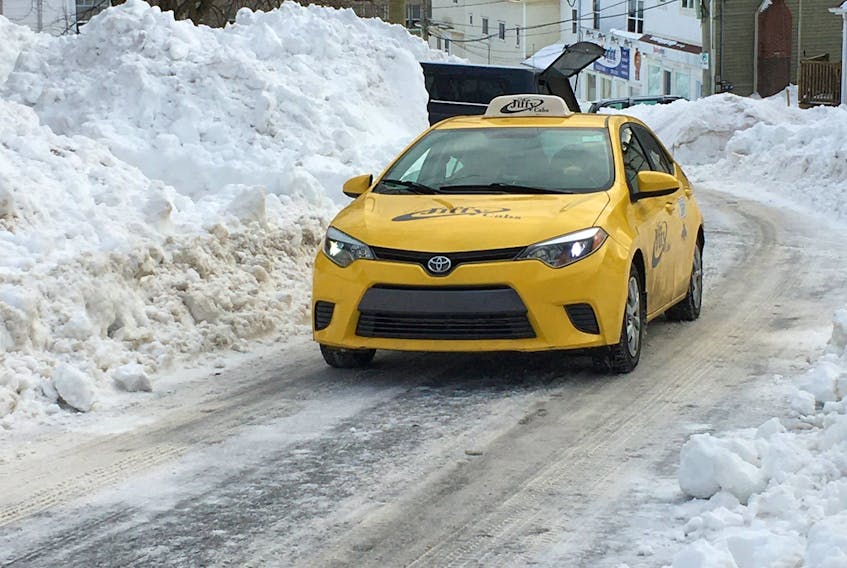ST. JOHN'S, N.L. — Taxi companies in the City of St. John’s have formed a new organization called Taxi-NL, to address shared concerns over the fate of the industry.
Owner of Jiffy Cabs, Chris Hollett, says if the high — and rising — insurance rates continue, it will be too costly to operate a taxi.
“After the (state of emergency), taxis were one of the first vehicles allowed back on the road besides snowplows because people have to be able to get around,” Hollett said. “Even Metrobus was unable to get around during the SOE. So, we’re an essential service and we’re essentially being priced out of our own industry.”
Taxi-NL has appointed former St. John's mayor Andy Wells to act as chair and consultant to the organization, citing his involvement with the Public Utilities Board, as well as his involvement with the taxi, parking and traffic, finance and Metrobus committees while on city council as reason for his involvement.
Wells says the issue of rising insurance rates comes from large settlements to people who have suffered soft tissue injuries, like a sprain, from a car accident.
“It’s the personal injury industry, I would call it,” Wells said. “If you compare our statistics with the rest of Atlantic Canada it is clear that (N.L.) is way out of whack.”

In a press release, Taxi-NL said the average auto insurance premium in N.L. is 40 per cent higher than the other Atlantic provinces. It also states that insurance rates for taxi’s have increased 240 per cent since 2012.
Wells says the amount of money being paid out to people here, who are making car accident-related, personal injury claims, exceeds the normal amount for other provinces. Because of this, he says people who drive in Newfoundland and Labrador are charged higher insurance rates, especially taxi companies who sometimes pay $1,000 a month, on top of other costs.
“This simply can’t go on, it’s just not possible” Wells said.
“It’s all legal, perfectly legal, but I mean it’s very, very unfair to the driving public and very unfair, in the extreme, to taxi drivers.”
Last February, the Telegram obtained a copy of a report by the Public Utilities Board (PUB), which stated it agreed taxi companies were in crisis because of insurance premiums.
“In 2012 the taxi industry reported incurred losses of $6 million which exceeded the earned premiums collected for the period by over $4.2 million, resulting in a loss ratio of 340 per cent,” the report notes.
“It’s all legal, perfectly legal, but I mean it’s very, very unfair to the driving public and very unfair, in the extreme, to taxi drivers.” — Andy Wells
In April of 2019, the Telegram reported that Justice and Public Safety Minister, Andrew Parsons, said they intended to address the problem of high insurance premiums by preventing accidents before they occur.
“The best way to prevent claims from going higher and premiums from going higher is to do more on the prevention, enforcement and deterrent side,” Parsons said.
Over the years, Hollett has been taking suggestions from government and insurance companies on ways to increase safety, by having higher standards for drivers and implementing systems to track their speed. However, increasing safety has not reduced their insurance rates.
“Having all this extra driver training, you would think, would give a reduction in certain insurance prices, which it hasn’t,” he says. “The claims have gone down, yes. But the insurance rates have gone up.”
According to Hollett, the provincial government says that they’re working with the taxi industry to help solve the issue. But he feels their concerns have been only partially addressed.
“I think it’s just because they don’t understand the industry,” he said.
“You can't make a living. Before you used to be able to do that. If you owned and operated a taxi license that was your own little business.”
Now, he’s uncertain how long the industry can last.
Twitter: @andrewLwaterman









